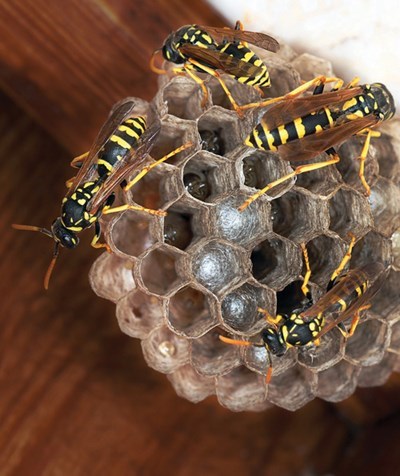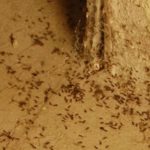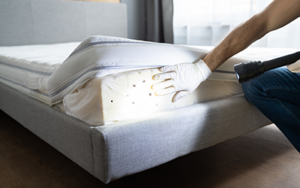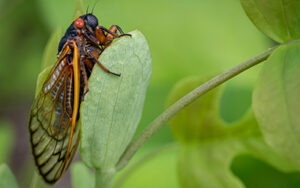
Stinging insects, such as wasps, hornets and bees, can easily ruin your outdoor fun. Most active and aggressive in late summer and early fall, these pests are frequently uninvited guests at many outdoor cookouts. Their stings contain venom capable of causing allergic reactions that send over half a million people to the hospital each year and result in painful swelling even for those without an allergic sensitivity. Severe allergic reactions can involve shortness of breath, dizziness, hives and even anaphylactic shock.
If you have been stung by a bee or wasp and are experiencing any of the above mentioned signs of allergic reaction, proceed to the hospital for immediate inspection.
Differences Between Bees and Wasps
Bees, including honey bees and bumble bees, feature hairy bodies and play a vital role in pollination. They are generally non-aggressive, though will attack if provoked or threatened.
Wasps are more aggressive than bees and often attack whenever someone invades their space. Yellow jackets, paper wasps and hornets are all wasp subspecies. Yellow jackets are particularly aggressive. Typically building their nests in the ground, they can easily be spurred to attack if stepped on or disturbed in anyway.
Honey bees can sting only once as they have a barb that detaches during the process, causing them to die shortly afterward. However, yellow jackets and paper wasps can sting targets repeatedly. Whether in the presence of bees or wasps, it is important to remain calm and vacate the area slowly to help ensure you are not perceived as a threat.
Avoiding Insect Stings
- Cover up with pants and long-sleeved shirts when gardening or working outdoors.
- Avoid walking barefoot in the grass.
- Take caution when eating or drinking anything sweet. Cover up desserts and sodas.
- Don’t wear sweet smelling perfumes, hairsprays and deodorants when heading outdoors.
- Avoid brightly colored clothing; especially clothes with floral patterns.
The best defense to stings is simply to limit exposure to stinging insects, so any nests near your home should be removed. If you attempt to remove the nest yourself, use great caution as this will be perceived as a direct threat on their space and can provoke them to attack. It is best to hire a professionally trained exterminator who is equipped and trained to eliminate any dangerous hive and ensure the infestation does not reemerge in the immediate area.
Need a pest control estimate?
We'll call you! Our representatives are fast and friendly.
Prepare for the Height of Stinging Insect Season in Wisconsin in Wisconsin
Serving Wisconsin





